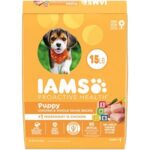Gaining weight can be a complex issue, often influenced by genetics, lifestyle, and overall diet. While there’s no single food that magically causes weight gain overnight, certain foods are more likely to contribute to rapid weight gain due to their high calorie density, unhealthy fats, or added sugars. This article explores some of the main culprits and provides healthier alternatives to help you maintain a balanced diet.
Fried Fish
Fish is generally a healthy choice, rich in omega-3 fatty acids and lean protein. However, when you batter and deep-fry it, you significantly increase its calorie and unhealthy fat content. The added calories from the batter and oil can quickly lead to weight gain.
Tip: Opt for baked, broiled, or grilled fish to retain its health benefits without the added fat and calories.
Plant-Based Dairy Foods (with Added Sugar)
Plant-based dairy alternatives like almond, cashew, or coconut yogurt, ice cream, and milk can seem like a healthy swap, especially for those with lactose intolerance. However, many manufacturers add sugar to these products to improve their taste and texture, which can negate their health benefits and contribute to weight gain.
Tip: Always choose unsweetened versions of plant-based dairy products to minimize added sugar intake.
Sodas, Alcohol, and Other Sugary Drinks
Sugary beverages are notorious for contributing to excess calorie intake and weight gain. Regular sodas, sweetened coffee drinks, and many fruit juices are packed with added sugars. Even diet sodas have been linked to weight gain in some studies, possibly by increasing cravings for sugary foods. Alcoholic beverages, especially mixed drinks like piña coladas, are also high in calories and sugar. Alcohol also promotes inflammation, which contributes to weight gain.
Tip: Stick to water, unsweetened tea, or black coffee. Infuse your water with lemon, mint, or berries for extra flavor.
Nuts
Nuts are a healthy source of mono- and polyunsaturated fats, antioxidants, and anti-inflammatory compounds. However, they are also calorie-dense, so portion control is essential to avoid weight gain.
Tip: Stick to small servings like a tablespoon of peanut butter or a handful of nuts, rather than consuming them directly from a large container.
Olive Oil
Olive oil is a heart-healthy fat and a great choice for cooking and dressings. However, it is also high in calories (over 100 calories per tablespoon).
Tip: Use a measuring spoon instead of pouring directly from the bottle to control portions. A drizzle is often sufficient.
Smoothies
Smoothies can be a nutrient-packed meal or snack, but they can quickly become calorie bombs if you add too much nut butter, seeds, sugar, or high-fat ingredients.
Tip: Use a protein-rich base like Greek yogurt or unsweetened milk, and balance your smoothie with fiber-rich ingredients like berries or spinach.
Salads
Salads are an excellent way to consume fiber, antioxidants, vitamins, and minerals. However, what you put on your salad matters. Cheese, bacon bits, croutons, and creamy dressings can significantly increase the calorie content.
Tip: Opt for light vinaigrette dressings and be mindful of portion sizes when adding high-calorie toppings. Include a variety of colorful vegetables and lean proteins for a more filling and nutritious salad.
Low-Calorie Ultra-Processed Foods
While packaged cookies, chips, and fast food are obvious culprits, even some frozen meals labeled “low calorie” fall into the ultra-processed category. These foods are often loaded with added sugars, unhealthy fats, and sodium. They are also easier for the body to digest, leading to increased calorie absorption and overeating.
Tip: Choose whole foods over processed options. Prepare healthy meals in advance and store them in the freezer. For snacks, opt for fruit or plain yogurt instead of chips.
Focus on the Big Picture
Consuming high-fat or sugary foods occasionally won’t necessarily lead to weight gain. It’s more important to focus on the overall quality of your diet. Fill your plate with nutrient-dense foods like lean proteins, non-starchy vegetables, and fiber-rich fruits. Moderation is key. You can enjoy almost any food in moderation as long as you balance it with healthier choices.
Bottom line: Prioritizing foods that are less likely to cause weight gain, such as non-starchy vegetables and berries, leaves less room for high-calorie, saturated fat, and added sugar foods. A healthy and sustainable diet is the most important factor for long-term weight management.
